
Recently, the award ceremony of the 15th Fu Lei Translation and Publishing Award, receiving much attention from the literary communities of China and France,was held in Guangzhou. Why has a translation award been held for fifteensessions? What was the original intention behind the establishment of this award? In 2024, which marks the 60th anniversary of diplomatic relations between China and France and is also designated as the China-France Year of Culture and Tourism, what kind of cultural feast can the two countries expect to offer their people? The Yangcheng Evening News has recently interviewed Nicolas Pillerel, Minister Counsellor for Culture, Education and Scientific Affairs of the French Embassy in China.
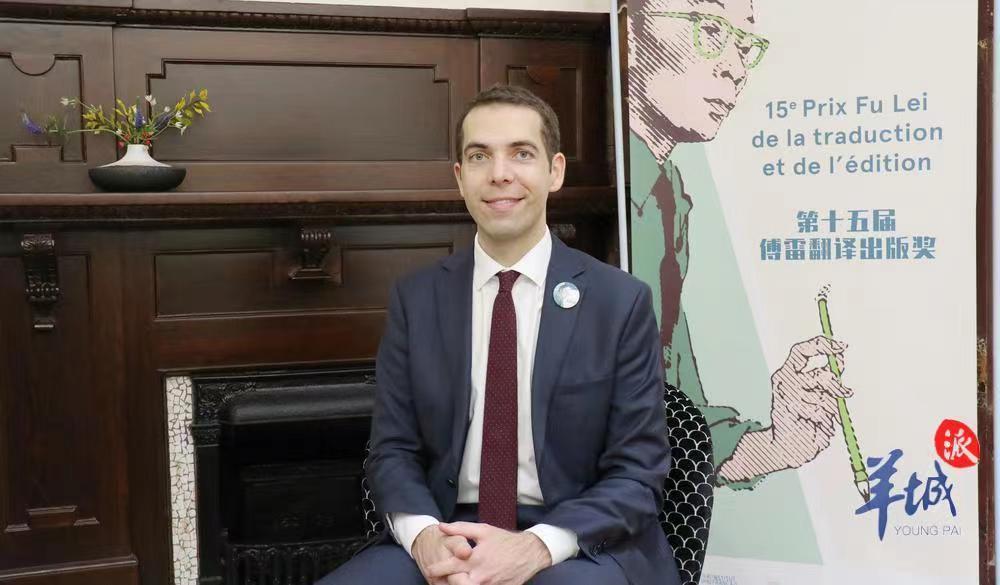
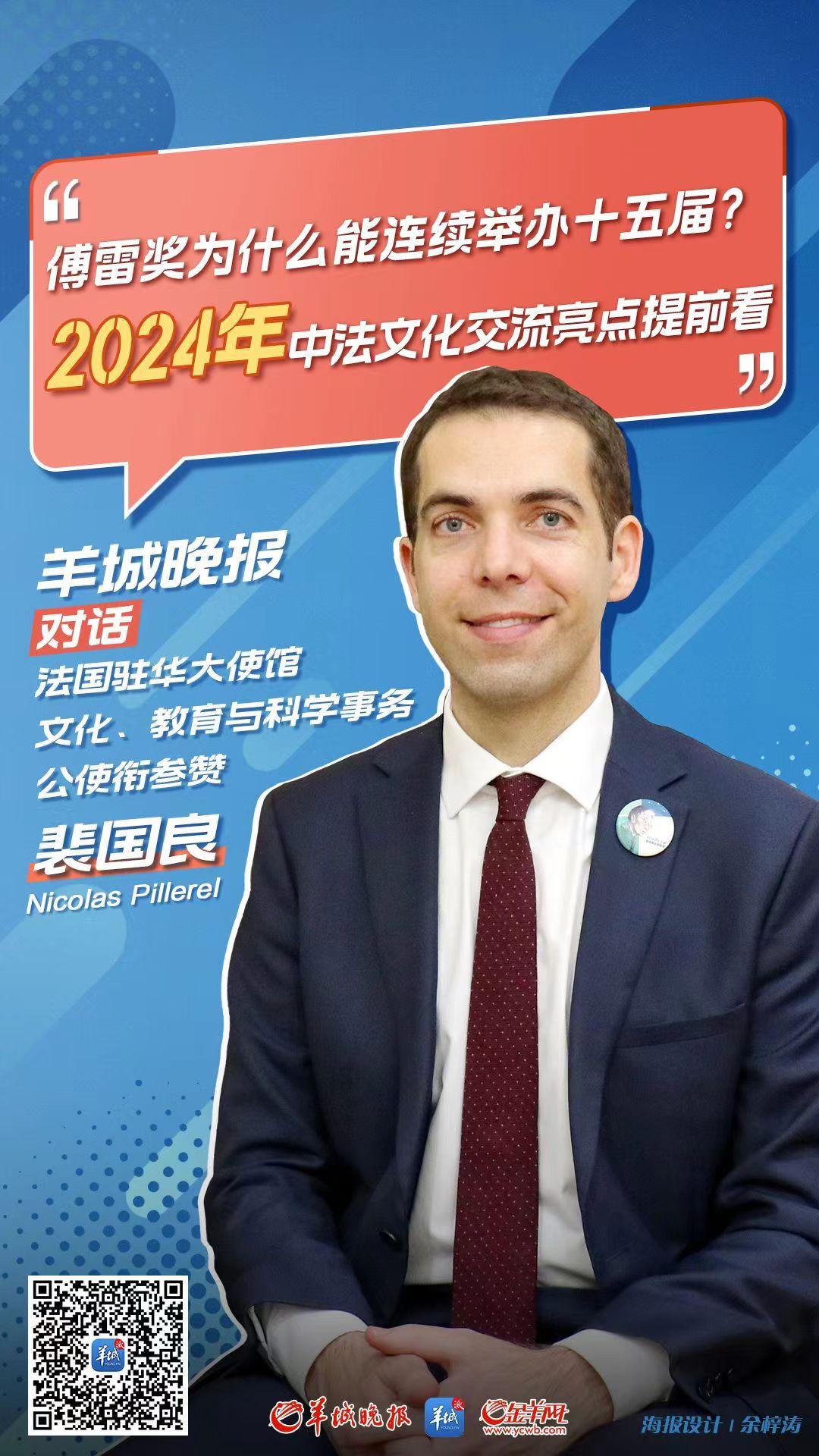 Yangcheng Evening News: The Fu Lei Translation and Publishing Award was established by the French Embassy in China in 2009, and the 15thsession of the Fu Lei Award has just been unveiled in Guangzhou. Could you please tell us about the original intention and background of the establishment of the Fu Lei Award? What changes have occurred during the fifteen sessions?
Yangcheng Evening News: The Fu Lei Translation and Publishing Award was established by the French Embassy in China in 2009, and the 15thsession of the Fu Lei Award has just been unveiled in Guangzhou. Could you please tell us about the original intention and background of the establishment of the Fu Lei Award? What changes have occurred during the fifteen sessions?
Nicolas Pillerel: The establishment of the Fu Lei Award was based on two foundations. First, there is a mutual appreciation of literary works between writers and readers from China and France. Second, Chinese readers have expressed a demand for more French works, which in turn generates a need for translation, especially quality translation.
Translation is a very demanding job, and many translators engage in it in their spare time alongside their regular work. They are more like behind-the-scenes workers compared to the authors of the books. The original intention of establishing the Fu Lei Award was to encourage these translators, to bring them from behind the scenes to the forefront, and to encourage and affirm their role as "ferryman" in Sino-French cultural exchange.
By 2023, the Fu Lei Award has been held for fifteen sessions. The biggest change that has occurred is the addition of the"Jeune PoussePrize" in 2013. At that time, we noticed that an increasing number of young people were participating in the submission of works, indicating that the establishment of this award has had a positive and constructive effect in promoting young people's involvement in the translation industry. We encourage young people to join the ranks of translators because their participation, to a certain extent, has contributed to the continued holding of our award, which is very important to us. This is also an achievement in promoting Sino-French cultural exchange.
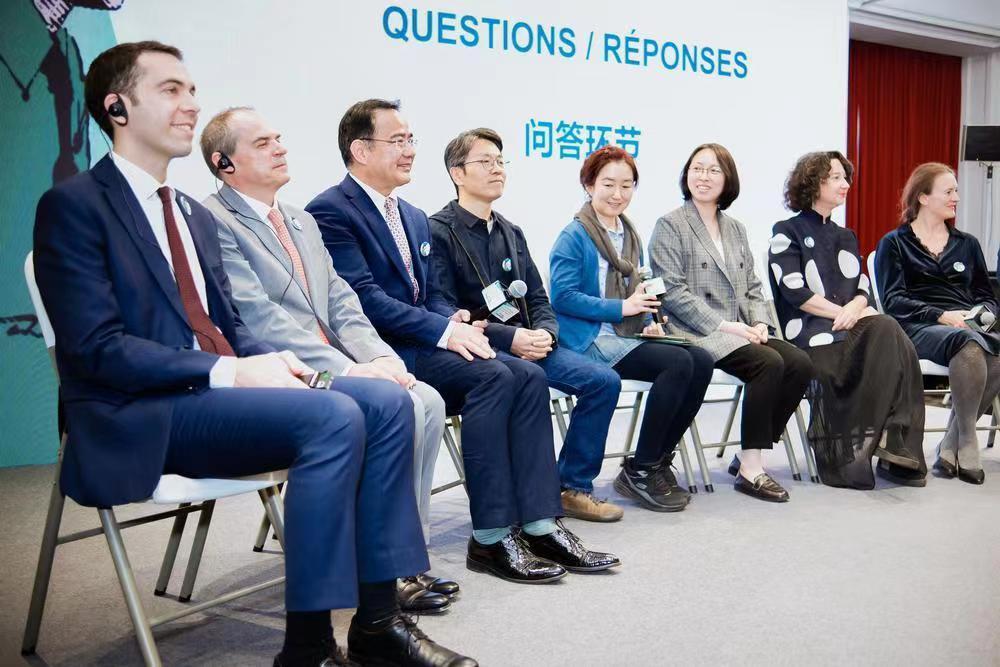
Yangcheng Evening News: Promotion is the keyword in Sino-French cultural exchange. It is not an easy task for a book-related award to be held for fifteen sessions. Has the continuous holding of this award benefited from the deepening cultural cooperation between France and China? In the process of promoting cultural exchange between France and China, what role has the Fu Lei Award played?
Nicolas Pillerel: The fact that an award can be held for fifteen sessions reflects the extent of the market's demand for it.
Before the establishment of the Fu Lei Award, there was no award specifically dedicated to book translation. The establishment of this award also filled this gap. When the first Fu Lei Award was held, we found that readers were curious about who the translators of these French literary works were, the accuracy of the translations, and how they became translators. At the beginning of the award, we also noticed that the winning translated works mainly consisted of translations of classic French works. Both works in the fields of humanities and social sciences and literary works were French classics, but they were not well-known to Chinese readers.
With the Fu Lei Award being held, the content and topics covered by the participating works have become increasingly diverse. This year, we have seen works covering history, law, globalization, philosophy, and even works focusing on the current lives of young people. These themes are very contemporary and relevant to current real-life situations.
The continuous existence of the Fu Lei Award is due to the deep cultural exchanges between France and China over a long period of time, as can be seen from the increasing details, themes, and fields covered in our works. This also indicates that the cultural exchange between our two countries is becoming more refined.
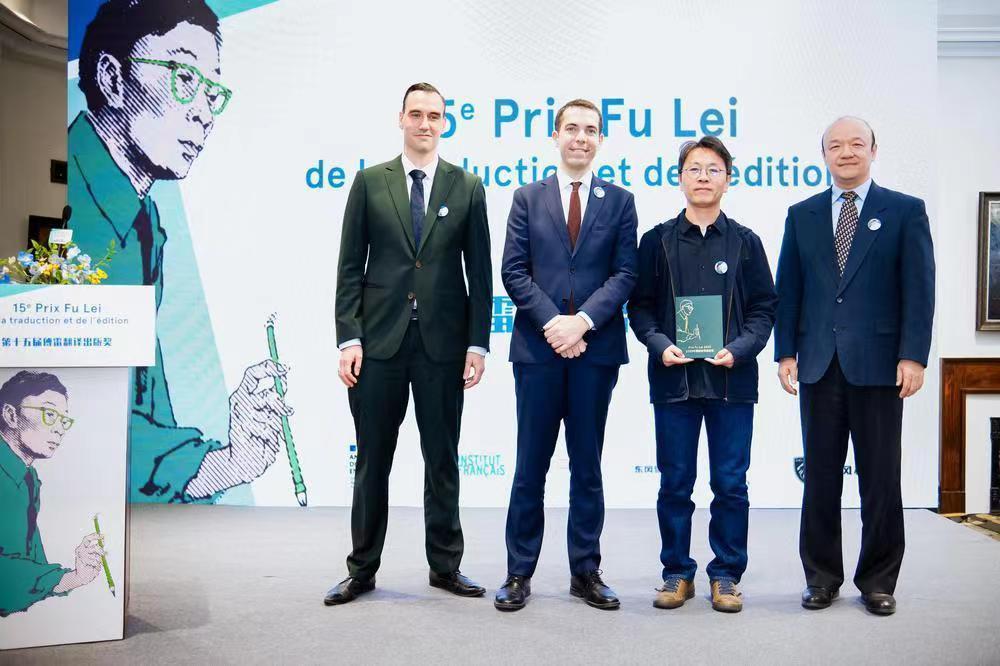 Yangcheng Evening News:This year, the award ceremony for the Fu Lei Award was held in Guangdong. One reason is to follow the principle of rotating the award ceremony among embassies and consulates, and it is also an opportunity to pay tribute to translators in the Lingnan region, such as Mr. Liang Zongdai and Mr. Zheng Kelu. What role do you think Guangdong has played in promoting cultural exchange between France and China?
Yangcheng Evening News:This year, the award ceremony for the Fu Lei Award was held in Guangdong. One reason is to follow the principle of rotating the award ceremony among embassies and consulates, and it is also an opportunity to pay tribute to translators in the Lingnan region, such as Mr. Liang Zongdai and Mr. Zheng Kelu. What role do you think Guangdong has played in promoting cultural exchange between France and China?
Nicolas Pillerel: I am very grateful that the 15th Fu Lei Award ceremony could be held in Guangzhou. We have consciously chosen different provinces in China to host the award ceremony, hoping that French culture and literature can meet the public in different regions of China. We have felt the enthusiasm here in Guangdong, which also indicates the demand for and love of French literature in this region. This love has also become the driving force behind our continued promotion of Sino-French cultural exchange.
There has always been a close cultural exchange between France and Guangdong. In the early years, Mr. Liang Zongdai from Guangdong translated works by French writers Valéry and Montaigne. In recent years, our cooperation with Guangdong has become even closer. For example, the Guangzhou Opera House collaborates with us and features performances of French plays in their annual program. In terms of artistic exchange, the inaugural exhibitions at the new Shenzhen Art Museum this year included the "Innovation of Impressions - Oil Painting and Photography Exhibition of Normandy, France".
In addition, Guangzhou and Lyon in France are sister cities, and the famous Festival of Lights in Lyon has been introduced to Guangzhou. In recent years, Guangzhou has also continuously held light festivals, attracting the attention of many people.
This year, with the arrival of the Fu Lei Award, our cooperation has also expanded into the literary field. From this, we can see that the cultural exchange between Guangdong and France is very diverse.
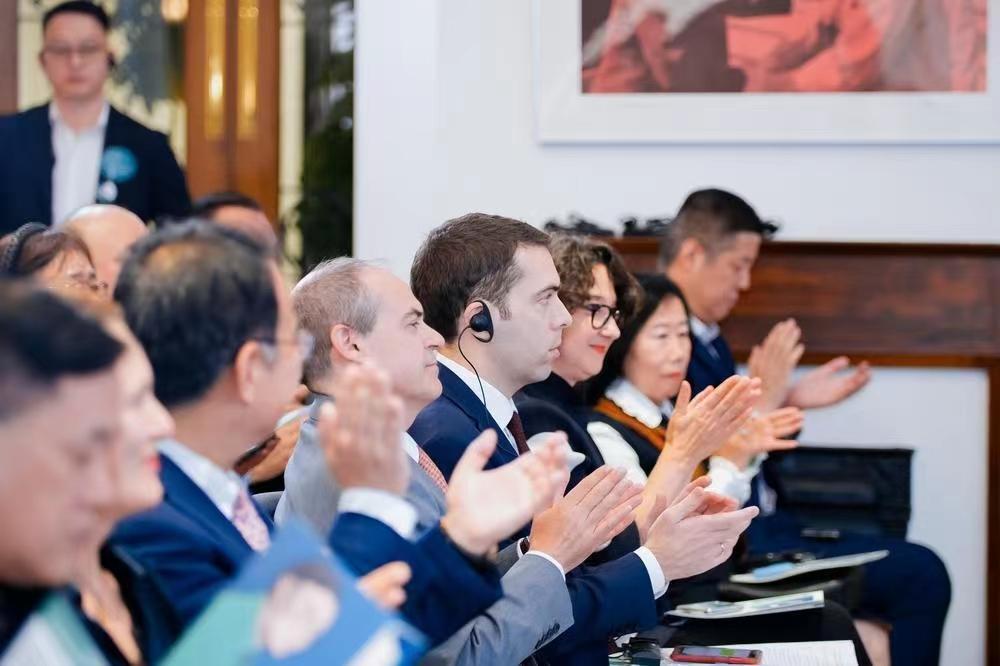
Yangcheng Evening News: This year, there have been particularly rich cultural exchange activities between China and France, including the Croisements Festival launched in April, and the China-France Cultural Forum held recently in Suzhou. Next year marks the 60th anniversary of the establishment of diplomatic relations between China and France. Will there be a series of large-scale cultural exchange activities?
Nicolas Pillerel: 2024 is a very special year. It is not only the 60th anniversary of the establishment of diplomatic relations between China and France, but also designated as the China-France Year of Culture and Tourism. It also marks the time when Paris, France will host the Summer Olympics, which is two years after the Beijing Winter Olympics. This is a great opportunity for us to strengthen exchanges and cooperation between China and France. We will carry out cooperation in various fields including culture and sports.
Cultural exchange activities have been ongoing since PresidentEmmanuelMacron's visit to China in April this year, and we will continue to promote them. On November 23rd and 24th,Catherine Colonna, French Minister for Europe and Foreign Affairs, visited China. During this visit, she discussed next year'scultural and people-to-people exchange projects.
Next year we will hold many large exhibitions in Beijing and Shanghai. This includes the highly anticipatedthe Palace of Versailles and the Forbidden City exhibition at the Palace Museum. In terms of artistic collaboration, there will be opera, ballet, modern dance, and film screenings, among others. 2024 will be an extraordinary year for cultural and artistic exchange between China and France, so please look forward to it.
文|记者 谭铮
图|记者 郭思琦
翻译|陈书君
来源 | 羊城晚报·羊城派
责编 | 王瑜瑛
-
Photos|Foshan witnesses peak battle of 900 dragon boat rowers
2023-11-26 22:56:35 -
Guangzhou ranks among China's most livable cities for the sixth time
2023-11-26 22:56:45 -
Foshan hosts inaugural Camping Life Expo
2023-11-25 23:51:05 -
From Macao to Beijing, a 71-day journey by bus
2023-11-25 23:51:18






